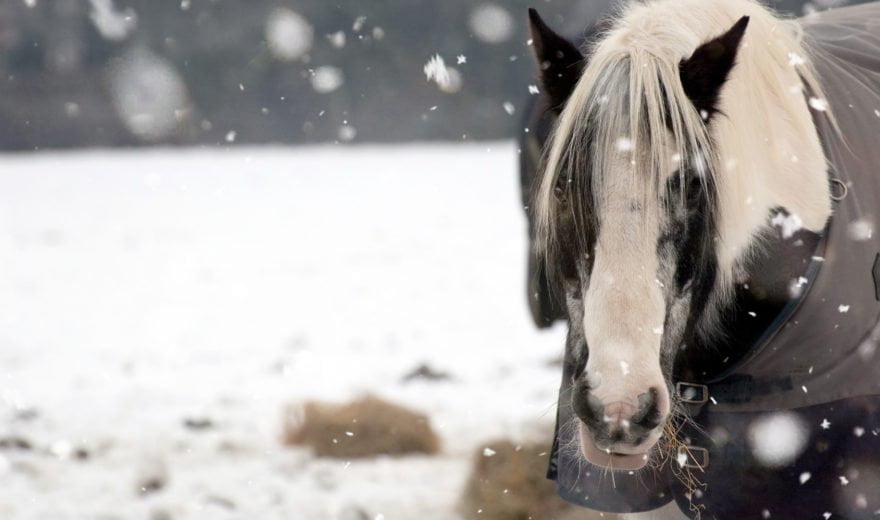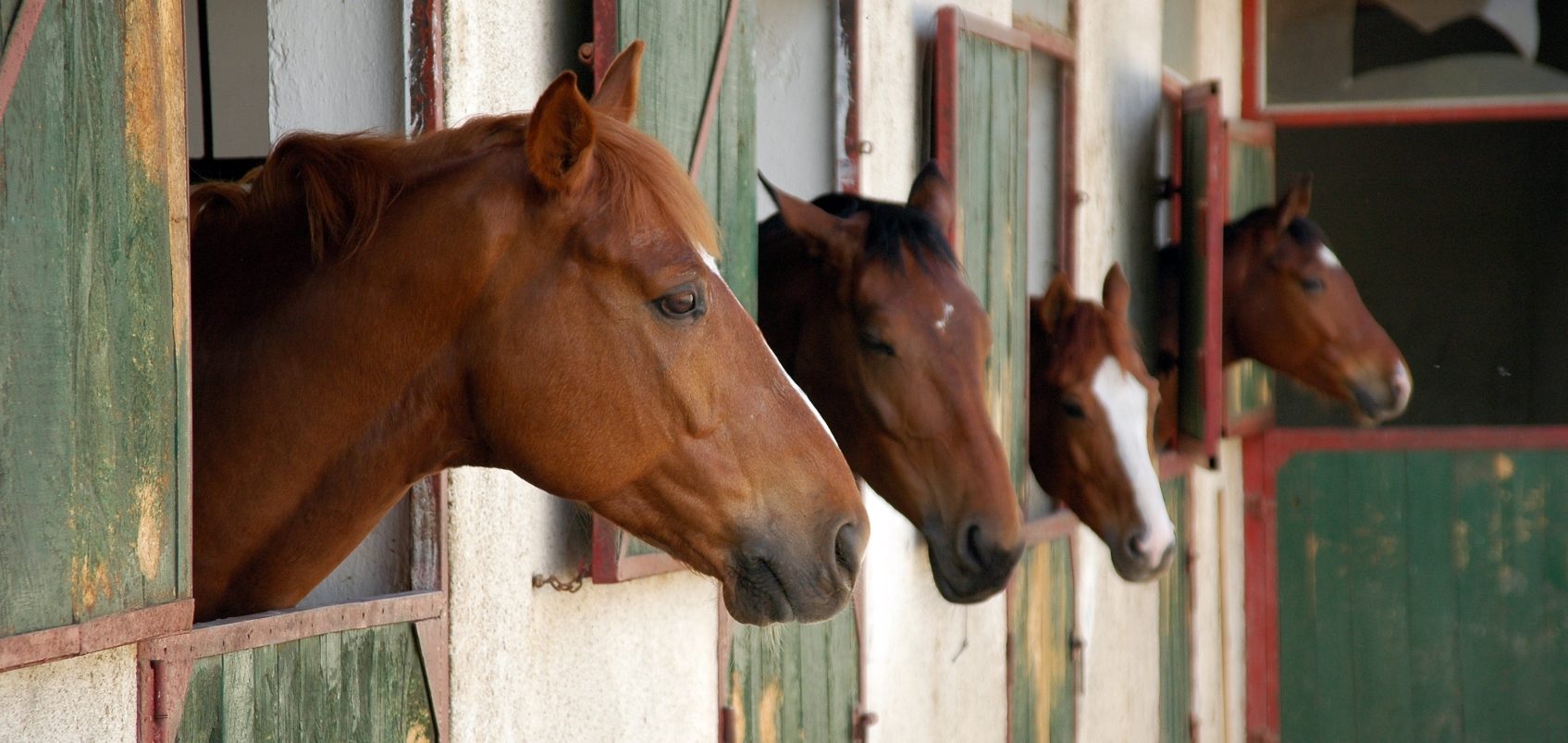
Horses can survive, even thrive in frigid conditions – which seems contrary to conventional ‘anatomical’ wisdom since only a scant supply of blood flows to a horse’s limbs in the best of weather. So it would seem horses would not be able to perfuse enough blood to warm their legs in extremely low temperatures.
“Yet they do,” notes Earl Gaughan, DVM, and an equine surgeon and instructor in the equine hospital of the Virginia-Maryland Regional College of Veterinary Medicine. “Horses are wonderfully adaptable animals.”
Quick facts:
- The average 1,000-pound adult horse needs at least 10 to 12 gallons of water daily.
- Adult horse at a maintenance level consumes between 2% – 2.5% of their body weight in feed (hay and grain) daily.
- On average, the hoof of a horse grows at about 5 to 10 millimeters every four weeks. In the winter, growth slows down to about 1 millimeter a week.
In cold weather, horses need to be able to move about. By staying mobile, some equine specialists speculate, they prime the pump that assists the flow of blood through their limbs with each step. Horses housed in barns or shelters should be turned-out to pastures and fields for regular exercise periods. A consistent turn-out schedule, paying close attention to the outdoor elements, Dr. Gaughan points out, prevents horses from losing or modifying their natural abilities to cope with the cold. Horses don’t have to be completely exposed to the elements, blanketing is an option. Though he warns dangerous entanglements can occur if the material were caught on fencing, branches or other obstacles. Also, horses can become too warm if temperatures rise while the animals are working up a sweat during the turn-out period.

Whether the horses are inside or out, they require plenty of accessible, drinkable water. Common sense says that a horse cannot drink frozen water. During the late fall and winter months there can be an increasing incidence of colic problems, Dr. Gaughan wrote in an article while he was a professor at the Kansas State College of Veterinary Medicine. Dehydration is often culprit - usually, water sources have frozen or access to available water has been obstructed by snow and ice. “It can’t be over-emphasized: your horse needs just as much water in the winter as it does any other time of the year.”
Horses have survived cold environments for a long time, so the issue for equine owners is not so much about keeping them warm. Horses have natural defense mechanisms to mitigate the effects of low temperatures – at least for a while. The challenge is to keep them supplied with drinkable water and enough food and to encourage them to move about to find it.
Winter Horse Care Tips:
- Provide warm water (45° to 65° F).
- Feed additional hay during extreme cold
- Provide access to shelter
- Perform regular hoof care
- Assess your horse’s body condition often – check out SmartPak’s Body Condition Scoring System
Sources:
E.M. Gaughan, DVM, Equine Surgeon, Instructor: Equine Hospital of the Virginia-Maryland Regional College of Veterinary Medicine.
Russell, Mark A, and Penny M Bauer. 2018. “Nutritional Management for Horses.” Purdue University Cooperative Extension Service, West Lafayette, Indiana. Accessed December 27. https://www.extension.purdue.edu/extmedia/as/as-429.html.

 BACK TO MAIN BLOG
BACK TO MAIN BLOG 
Comment